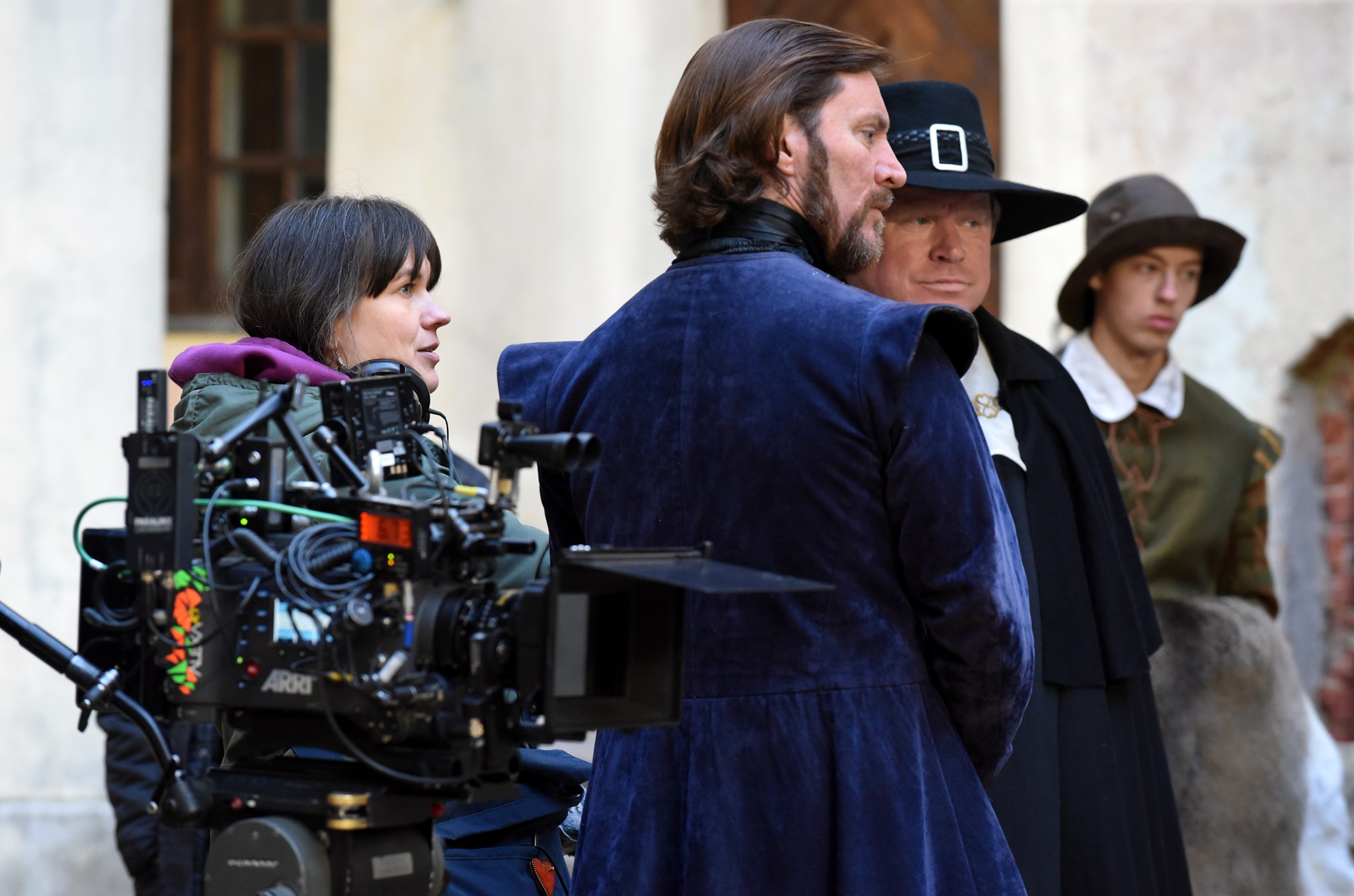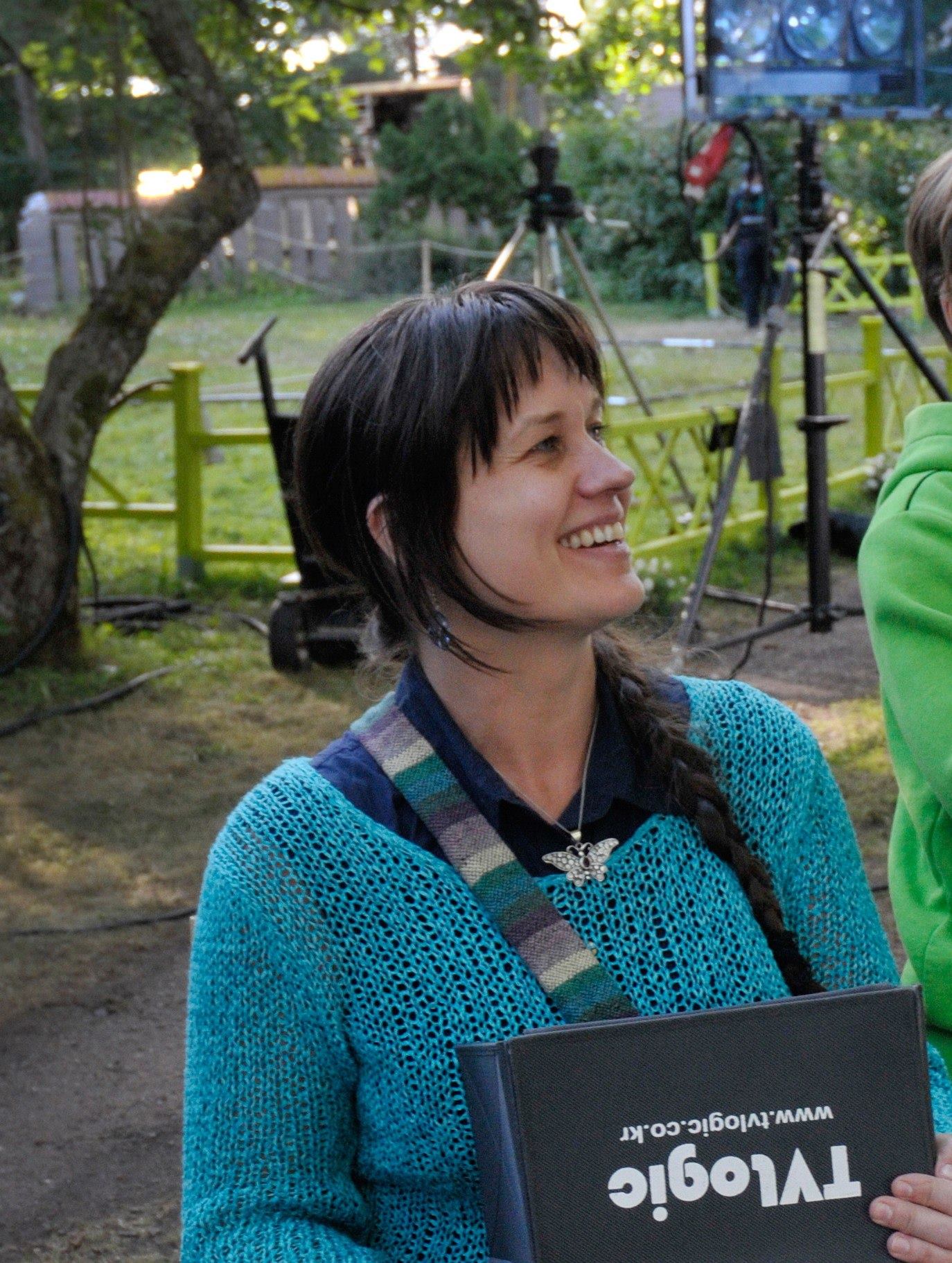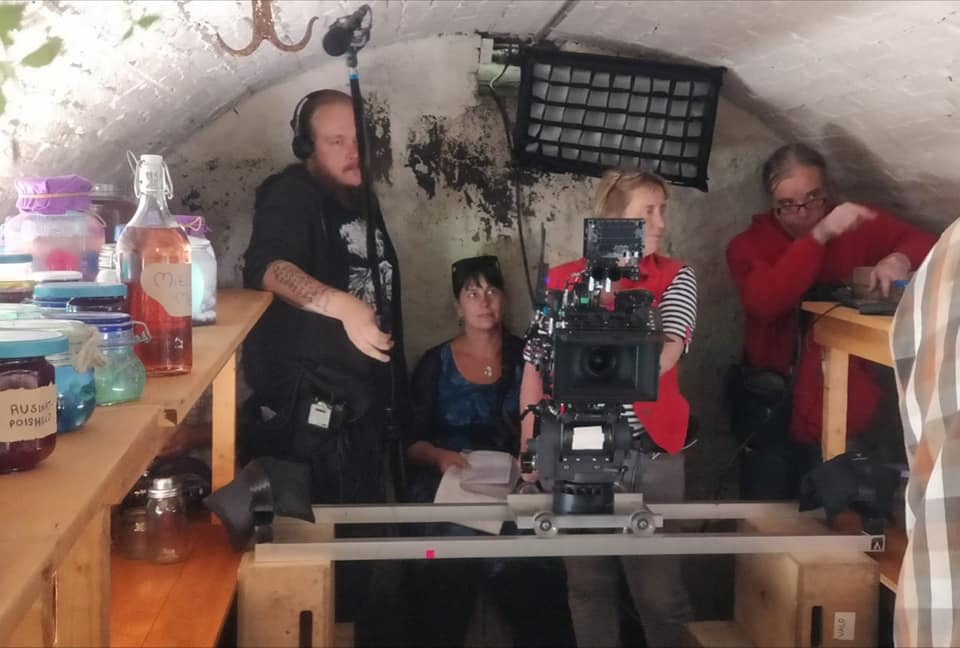Having directed nine feature film productions, and numerous shorts and television series, Saara Cantell is one of Finland’s most productive directors. Due to the current worldwide pandemic we meet online, where she tells us about her upcoming projects:
– I’m currently working on a ten-part television series; Karkurit (FAST) by Yellow Film & TV. It’s about a police force special unit that tracks down fugitives. I was happy to be asked to direct, since the script is well written and it’s a new genre for me. I’m also writing my new, upcoming novel.
Your upcoming feature Siblings, about twins Joni and Jenna who find out they have a half-sister in Iceland, is an interesting project that is filmed over several years. How is that going?
– Siblings is a crazy and very dear project which is produced together with my film family. Our lovely team consists of cinematographer Marita Hällfors, sound producer Sami Kiiski, casting director Minna Sorvoja and actors Henna Tanskanen, Lauri Tanskanen and Elin Petersdottir. We’re shooting Siblings over a seven-year timespan in Finland and Iceland, a few days at a time at two to three occasions each year. We’re on our sixth year of filming, and I’m sad to see the project coming to an end!
You have worked with various productions during your career in film and raised awareness of current issues in culture in general. Is taking a stance and speaking up important to you personally?
– Yes. To influence my own field and the society at large, as well as taking a stance on important subjects, is something I see as a responsibility of mine. As a feminist I will not keep silent when seeing injustice. I have gotten so much out of the film industry, and have been lucky in several ways, so I feel I have a duty to pave the way for others.
Throughout your career you have questioned the norms in our society that are reflected in culture and media. How do you view norms in film today?
– It still seems to me that men are the norm, and that through a male character stories of humankind become universal, while women are still considered representing only women. I firmly believe that we need big changes in whose stories and what kind of stories we envision as important, universal and worthy to be told.
In 2016 Cantell’s film Devil’s Bride (Tulen morsian) premiered. Devil’s Bride depicts witch hunts on the Åland Islands during the 1660’s, and tells the story about 16-year-old Anna, who falls in love with a married fisherman. The fisherman’s interest in Anna fades, and she seeks revenge by falsely accusing the wife, who gets arrested. The unfolding events leads Anna to understand what she has done, and to her trying to make amends. Saara Cantell and scriptwriter Leena Virtanen became involved with the topic twelve years before the release.
– Devil’s Bride took over ten years to finally get into production. The most common remark I got was that the main character is difficult and unpleasant, and that the script shouldn’t depict a young woman that acts in such a way, Cantell says.
That is surprising, since personally, to me, Anna is an interesting, multifaceted and dynamic main character. In general, you have been asked why you have women characters in your films. Have you seen a change in the film industry and how women are depicted?
– Through the MeToo-movement there has, fortunately, been huge changes in work culture, as well as a fair amount of discussions concerning the depiction of women in films and series. However, there are still issues, such as the huge difference in age representation between men and women in film.
Cantell has addressed inequality in power structures as well. In March of 2018, in an article on Finland’s national public broadcasting company Yleisradio’s site, a number of Finnish actors came forward stating that an award-winning Finnish film director had subjugated and humiliated them during the shooting of his productions. Later that same year, after the allegations came to light, Cantell’s book Lähikuvan lumo was published. In the book Cantell talks about directing actors in film and what a healthy relationship between an actor and a director should look like.
How did you end up writing on this topic, and was the timing a coincidence?
– I started writing the book way before the scandals or MeToo. However, the timing was not solely a coincidence. I wanted to write and publish the book due to the things I heard throughout my years in the film industry. My acquaintances and colleagues had shed light on the appalling and horrible things that happened during shootings, which finally led me to write Lähikuvan lumo.
In her career Cantell has directed films for children as well. Cantell’s first feature film was Unna & Nuuk (2006), where eleven-year-old Unna finds a shaman drum and travels back in time. Unna befriends Nuuk, and embarks on fantastic adventures with him. Unna & Nuuk is a film that has elements of magical realism, and which explores questions of reality and dreams.
How did you find yourself working with children’s movies?
– It feels like I got that opportunity as a gift, since I was asked to direct Unna & Nuuk as well as the Jill and Joy-films. Unna & Nuuk was director Joona Tena’s original idea and work, but his film FC Venus (2005) got into production during that time, so he suggested me as a director.
You have directed four films on Jill and Joy (Onneli ja Anneli), based on author Marjatta Kurenniemi’s (1918-2004) lovable characters that she created in the 1960’s. How did you end up doing the screen adaptions?
– Producer Teea Hyytiä asked me to be the director. I was eager to do it, since Kurenniemi’s books were my favourites when I was a child. Initially I promised to only direct three Jill and Joy-films, but in the end, I could not resist a fourth one, Jill & Joy and the Sleeping Clock (Onneli ja Anneli ja nukutuskello, 2018). I absolutely loved the script, and the idea of giving away the world of Jill and Joy to the hands of someone else was strange.
Besides your work with feature films, children’s movies and television series, you have worked with, and expressed a love for, short films. You have also expressed a concern that short films are not being appreciated as an art form. Do you still feel that? And do you wish to direct short films?
– I do still dream of making a “perfect” short film! Although my standards have risen through the years… The status of the short film – as an art form in itself – has improved, yes, but there is still an idea of short films as an exercise, or a way in, before doing feature films.
It seems that we need to find new ways to bring forth short films and expose them to the audience. But how? Maybe incorporate them into schools as a part of teaching?
– We need to give short films visibility and platforms to be screened. We need collections of short films with various themes available on streaming sites and the like. And yes, bringing short films into schools is a good idea.
Do you have time for any hobbies in the midst of everything? What do you enjoy doing, besides films?
– I do have spare time! I read a lot, do yoga, and whenever it will be possible again, I will go to the gym and the theatre. And I have a hula hoop I use at home. I love food and cooking – every now and then I cook a huge amount of vegan food and invite my sons, who have now moved away from home, and their partners, for dinner.


